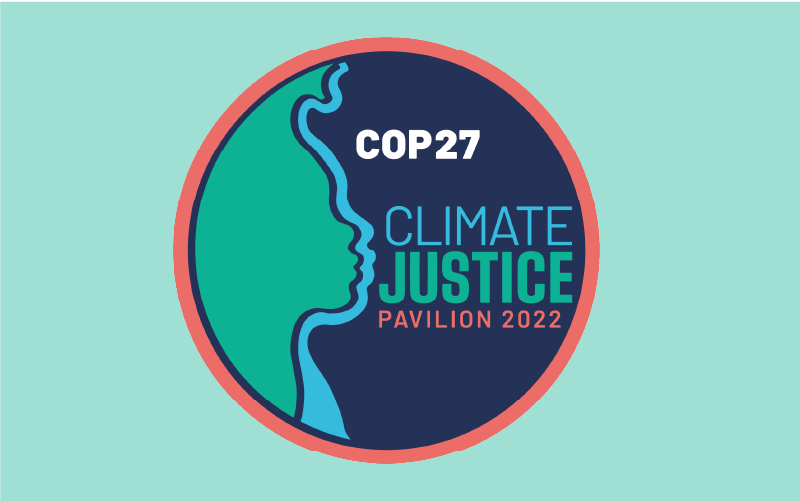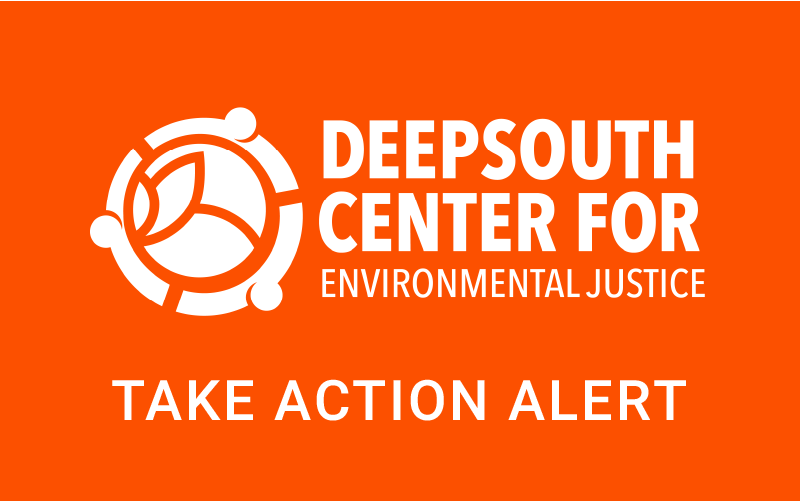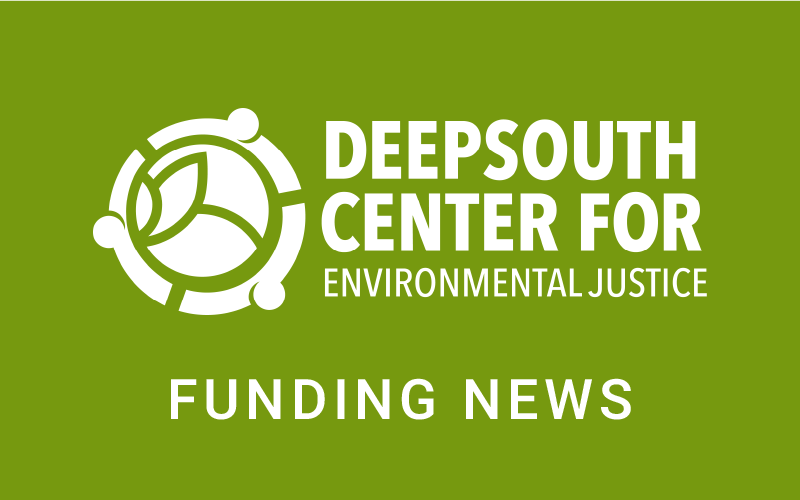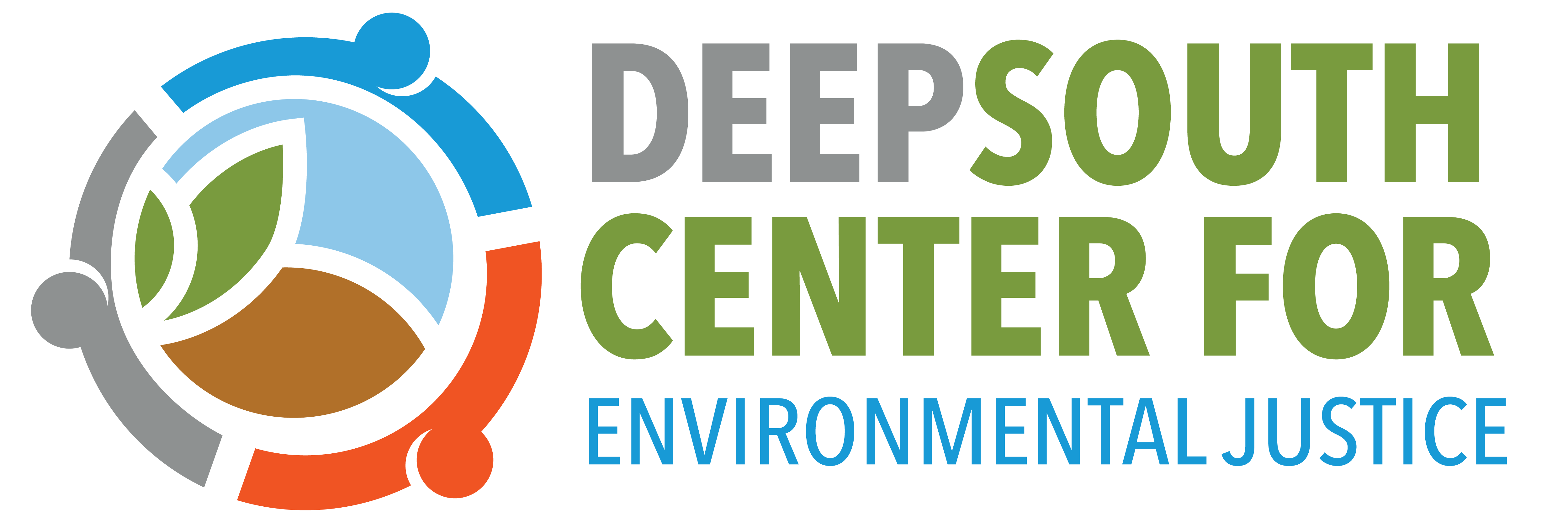
Nov 15, 2022 | DSCEJ General News, Press Releases, The Latest News
Deep South Center of Environmental Justice, Sierra Club, and Healthy Gulf hope to prevent further construction of a fracked gas export facility that will further harm Black and Indigenous communities in Southern Louisiana without the proper environmental precautions
FOR IMMEDIATE RELEASE: November 15, 2022
(New Orleans, LA) – PLAQUEMINES PARISH, LA – Last week, Deep South Center for Environmental Justice, Sierra Club, and Healthy Gulf filed a petition for judicial review against the Louisiana Department of Natural Resources (LDNR). This petition follows the LDNR’s decision in a one-page letter to illegally exempt Venture Global Plaquemines LNG, LLC from obtaining a Coastal Use Permit for further development of a fracked gas export facility under construction in Southern Louisiana. The LDNR’s decision provides no analysis, finding of facts, or any showing that it considered the data and scientific reports showing the immense damage that can result from the Venture Global Plaquemines LNG facility.
Located 35 miles south of New Orleans in the Plaquemines Parish coastal zone, the Venture Global LNG facility will contribute to the climate crisis and cause irrevocable damage to surrounding communities of color. Construction of the site will destroy nearly 400 acres of vulnerable wetlands that serve as a storm buffer for nearby communities including New Orleans.
An affidavit by Dr. Ivor Van Heerden concludes that the existing and proposed levees around the LNG site are inadequate, risking surge flooding and levee failure for major hurricanes and other severe storms. “Substantial design flaws in the proposed storm wall and construction process pose substantial risk of a levee failure. Failure of any levee and especially the I-wall ring dike will result in catastrophic release of chemical contaminants towards Barataria Bay impacting wetlands as well as the waters of the Bay. The impact to wetland fauna and flora would be immense,” according to Dr. Van Heerden’s affidavit.
Just last year, Hurricane Ida, a Category 4 storm, flooded the site for over a month. With an operational LNG facility at the location, a similar storm would release pollution into homes, businesses, farmland, and coastal waters. Further disruption to these coastal lands continues an unjust pattern of people of color bearing the brunt of the climate crisis despite contributing to it the least.
By not requiring Venture Global to obtain a Coastal Use Permit, the LDNR has put the priorities of a large corporation ahead of the safety of families in Plaquemines Parish. Despite input from the scientific community and lessons from previous natural disasters, the LDNR unlawfully ignored the damaging effects of the facility. When presented with facts and data necessitating Venture Global Plaquemines LNG apply for a Coastal Use Permit, Thomas Harris, Secretary of the LDNR, said, “. . . I do not find that conditions have changed sufficiently for me to reopen this matter.”
“The LDNR continues its track record of failure to execute its duty as a public trustee under the Louisiana Constitution which harms Black and Indigenous communities and damages our coast,” said Monique Harden, Assistant Director of Law and Public Policy at Deep South Center for Environmental Justice. “Venture Global is not above the law that requires companies to minimize harm in a coastal zone.”
“The LDNR’s refusal to require a Coastal Use Permit for Venture Global’s Plaquemines LNG facility puts frontline communities and precious Louisiana coastal waters at severe risk, and we look forward to the court’s review,” said Lisa Diaz, attorney for Sierra Club.
“The people of Louisiana have to endure enough with natural disasters threatening our coast and way of life. We absolutely do not need the compounded risk of environmental damage caused by facilities in the aftermath of detrimental storms, yet we see this happen time and time again,” said Jessi Parfait, a citizen of the United Houma Nation and Sierra Club Beyond Dirty Fuels Campaign Representative. “In the face of evidence, LDNR is refusing to do what is right and are instead choosing to risk the lives and health of communities who are already vulnerable because as a resident of coastal Louisiana, we know it isn’t a matter of if we will get another big storm but when.”
“The LDNR’s decision that a Coastal Use Permit isn’t required runs contrary to what we know about this Environmental Justice community in Plaquemines Parish that already had a backlog of wetlands restoration needs before the impacts of Hurricane Ida,” said Scott Eustis, Community Science Director for Healthy Gulf.
Contact:
Ginger LeBlanc | gingerl@dscej.org
Valerie Keys | vkeys@skdknick.com
About the Deep South Center for Environmental Justice
Families in the Gulf Coast deserve to live in communities that are free from deadly air and are more resilient to climate change and extreme weather. The Deep South Center for Environmental Justice (DSCEJ) works to empower and engage communities to put environmental justice and equity at the center of all climate action. Led by environmental justice scholar and advocate, author, civic leader and professor of Sociology Dr. Beverly L. Wright, the DSCEJ uses research, education, and community and student engagement to advocate for policy change, lead health and safety training for environmental careers, develop social and emotional community wellness programs, and create new and environmentally healthy opportunities for the residents of communities disproportionately impacted by historic environmental injustice.

Oct 25, 2022 | DSCEJ General News, International Connection News, The Latest News
Deep South Center For Environmental Justice, WE ACT for Environmental Justice, and the Bullard Center for Environmental and Climate Justice Join International Partners for Historic Environmental Justice Presence in the Blue Zone
FOR IMMEDIATE RELEASE: October 25, 2022
(New Orleans, LA) – The Deep South Center for Environmental Justice (DSCEJ), WE ACT for Environmental Justice (WE ACT), and the Bullard Center for Environmental and Climate Justice at Texas Southern University (BCECJ) will debut the first-ever Climate Justice Pavilion inside the Blue Zone at COP27, the 2022 United Nations Climate Change Conference, in Sharm El-Sheikh, Egypt, November 6-18, 2022. The pavilion will bring together representatives from the Global South, the U.S. Environmental Justice Movement, and Indigenous peoples to spotlight the voices of communities disproportionately impacted by climate change.
The IPCC reports consistently raise the alarm about the worsening impacts of climate change on the most vulnerable communities, countries, and island states. Yet, the voices, stories, and perspectives of residents of these localities are rarely heard, communicated, or promoted – despite the increasing incidence of climate migration due to extreme weather events that cause flooding, destruction, drought, and soil and coastal erosion. The Climate Justice Pavilion will help to bridge that gap by serving as a space for productive conversations in the Blue Zone, which is where the majority of diplomats, policymakers, business, and professional advocates convene at COP27.
Historically, grassroots groups and activists have been providing environmental justice programming for years in the conference’s Green Zone which is geographically isolated from the Blue Zone. Because of this segregation, a collaboration was developed to build a Climate Justice Pavilion where individuals from the Global South, the U.S. Environmental Justice Movement, and other international movements can dialogue on issues including:
- Connecting the people of the global migrating south forced to flee their homes because of unsafe communities due to outsized natural disasters or life-taking pollution;
- The risk of carbon capture and storage technology to front-line communities and the need for just solutions to reduce carbon;
- Climate Finance and the need to support communities with mitigating and adapting policies that will address climate change;
- Loss and damage to underserved communities due to years of colonialism and environmental racism;
- The need for energy justice, including equitable reparations for communities historically harmed by climate change;
- and climate reparations for poor communities burdened by the world’s richest people.
“Women, children of color and the communities where they live are too often an afterthought when talking about climate justice. The first-ever Climate Justice pavilion will provide a global stage to highlight their stories and others, encouraging governments to develop policies and clean energy transition plans that are inclusive, equitable, and reflect research on the effects on our communities.” said Dr. Beverly Wright, Executive Director, Deep South Center for Environmental Justice. “The Global South from the United States to Africa is bearing the brunt of our climate crisis. Natural disasters coupled with centuries of colonialism and racism that underpin global environmental policy have devastated countless communities. This pavilion will challenge the world’s best and brightest to reimagine how to tackle climate change and protect the most vulnerable all around the world.”
“You cannot talk about solving the climate crisis if the people most impacted are not at the table,” said Peggy Shepard, Co-Founder and Executive Director of WE ACT for Environmental Justice. “The historic nature of the Climate Justice Pavilion cannot be understated, as it creates a space for those voices, their stories and perspectives, to be heard by decision makers on the international stage. We look forward to elevating the discussion of climate migration, energy justice, and the risk of false solutions to our communities as well as the need to center equity when addressing climate change.”
“The significance of COP27 in Africa underscores the importance of environmental justice and the significance of our first-ever climate justice pavilion. Those who visit the pavilion will hear about sectors of climate policy routinely overlooked and marginalized because of historic environmental racism,” said Dr. Robert Bullard, Director, Bullard Center for Environmental and Climate Justice, Texas Southern University. “We will host discussions on climate finance, loss and damage, energy justice, and climate reparations, among the topics most important to vulnerable communities bearing the brunt of the climate crisis around the world. I am very excited about what our team and the Climate Justice Pavilion are bringing to this year’s conference.”
A delegation of over 40 representatives of grassroots communities; Students of Historically Black Colleges and Universities (HBCUs); and staff support will accompany the collaboration to manage logistics, travel, programming of the pavilion, and relevant research.
The COP 27 Climate Justice Pavilion is a collaboration effort from Dr. Beverly Wright, Executive Director of the Deep South Center for Environmental Justice; Peggy Shepard, Executive Director of WE ACT For Environmental Justice; Dr. Robert Bullard, Director of Bullard Center for Environmental and Climate Justice, Texas Southern University; Fred Krupp, President of Environmental Defense Fund, Abigail Dillen, President of Earthjustice; Dr. Deb L. Morrison, CLEAR Environmental; Marina Macal, Instituto Clima e Sociedade; Cathy Eatock, Local Communities and Indigenous Peoples Platform; and Mithika Mwenda, PACJA, Pan African Climate Justice Alliance.
Sponsors Include: Bloomberg Philanthropies, Environmental Defense Fund, Earthjustice, Union of Concerned Scientists , The Kresge Foundation , National Wildlife Federation, Center for American Progress, The David and Lucile Packard Foundation, Sierra Club, Natural Resources Defense Council, and Columbia Climate School.
About the Deep South Center for Environmental Justice
Families in the Gulf Coast deserve to live in communities that are free from deadly air and are more resilient to climate change and extreme weather. The Deep South Center for Environmental Justice (DSCEJ) works to empower and engage communities to put environmental justice and equity at the center of all climate action. Led by environmental justice scholar and advocate, author, civic leader and professor of Sociology Dr. Beverly L. Wright, the DSCEJ uses research, education, and community and student engagement to advocate for policy change, lead health and safety training for environmental careers, develop social and emotional community wellness programs, and create new and environmentally healthy opportunities for the residents of communities disproportionately impacted by historic environmental injustice.
About WE ACT for Environmental Justice (WE ACT)
WE ACT for Environmental Justice is a Northern Manhattan membership-based organization whose mission is to build healthy communities by ensuring that people of color and/or low-income residents participate meaningfully in the creation of sound and fair environmental health and protection policies and practices. WE ACT has offices in New York and Washington, D.C.
About the Bullard Center for Environmental and Climate Justice at Texas Southern University (TBC)
The Bullard Center for Environmental and Climate Justice at Texas Southern University addresses longstanding issues of systemic inequality and structural racism that cause disproportionate pain, suffering and death in Black and other people of color communities. The Center is directed by environmental justice scholar Dr. Robert D. Bullard and is housed in the Barbara Jordan-Mickey Leland School of Public Affairs. It strives to be a leading force for transformative environmental, climate, and racial justice using rigorous science, community-driven research, policy, civic engagement programming, and effective advocacy.

Sep 28, 2022 | Take Action Alert, The Latest News
DSCEJ is proud member of the Healthy Homes Coalition in New Orleans, which believes that everyone deserves a home free of leaks, mold, and other major health and safety hazards.
TOMORROW (Thursday, September 29), the New Orleans City Council will introduce the Healthy Homes Ordinance (Ord. Cal. No. 33,898). We invite NOLA citizens to take action for healthy homes for all.
1. ATTEND the Healthy Homes Council Hearing and make a comment in support of the proposed Healthy Homes ordinance.
WHEN: Thursday Sep 29, 2022 ⋅ 1pm – 5pm (Central Time – Chicago)
WHERE: New Orleans City Council Chambers,
1300 Perdido St, New Orleans, LA 70112, USA
This hearing will be in the City Council Government Affairs Committee.
- The front desk staff will guide people to council chambers.
- Once inside, you may fill out a yellow speaker card, located on a table at the far right side of the chamber.
- Submit your card and wait to be called up to the mic to speak.
2. SUBMIT A COMMENT on the Council website.
To submit your comment to the Governmental Affairs Committee, click here.
Be sure to click agenda item “1. Healthy Homes Ordinance (Ord. Cal. No. 33,898).”
3. CALL your Councilmember.
Call your Councilmember to tell them you support Healthy Homes!
VISIT THIS LINK FOR MORE DETAILS

Aug 25, 2022 | DSCEJ General News, Funding News, The Latest News
(New Orleans, LA) – The Deep South Center for Environmental Justice (DSCEJ) has been awarded a $500,000 grant from The Windward Fund through its Environmental Justice Data Fund project. This grant will fund DSCEJ’s creation of the Environmental Justice Data Hub (EJDH), an interactive online portal to provide environmental justice organizations the opportunity to conduct research relevant to the needs of their communities.
“The Environmental Justice Data Hub will be an invaluable tool for our community partners as well as environmental and climate justice advocates across the country,” said Dr. Beverly Wright, DSCEJ Founder and Executive Director. “One of the best tools we have to advocate for policy change is data. We will develop the EJDH to help communities to effectively show what is in the air we’re breathing and the water we’re drinking, as well as bring more attention to the impacts of toxic chemicals on our health and quality of life. We thank the Windward Fund for this award and the ability to continue empowering advocates and climate justice leaders with the resources they need to catalyze change in their communities.”
The EJDH will leverage DSCEJ’s 30 years of education and research programs that provide community-based organizations with the tools needed to advocate for change on local, state, and federal levels of government.
About the Deep South Center for Environmental Justice
Families in the Gulf Coast deserve to live in communities that are free from toxic air and are more resilient to climate change and extreme weather. The Deep South Center for Environmental Justice (DSCEJ) works to empower and engage communities to place environmental justice and equity at the center of all climate action. Led by environmental justice scholar and advocate, author, civic leader and professor of Sociology Dr. Beverly L. Wright, the DSCEJ provides research, education, and community and student engagement to advocate for policy change, lead health and safety training for environmental careers, develop social and emotional community wellness programs, and create new and environmentally healthy opportunities for the residents of communities disproportionately impacted by historic environmental injustice.
About the Winward Fund’s Environmental Justice Data Fund
The Environmental Justice Data Fund (EJDF or “the Fund”) is an $8 million fund, created and seeded by Google.org, that aims to help frontline communities who have been historically underserved and disproportionately impacted by climate change and environmental injustice.

Aug 16, 2022 | Press Releases, The Latest News
NEW ORLEANS, LA – Following President Biden signing the Inflation Reduction Act, Dr. Beverly Wright, Executive Director of the Deep South Center for Environmental Justice (DSCEJ), released the following statement:
“The Inflation Reduction Act (IRA) includes positive benefits that are responsive to the needs of families, but its funding for dirty energy puts a target on Black and other communities of color harmed by pollution in the Gulf Coast and across the United States. Instead of funding the transition away from fossil fuel production, the IRA incentivizes it. Among these incentives are billions of dollars for carbon waste projects without regard for their risks to communities and record of failure to mitigate climate change.
“The Environmental Justice community is no stranger to setbacks, and we are already planning our next steps forward. Our efforts will be centered on engaging regulators and policymakers, as well as taking court action, to prevent polluting facilities from ever coming online. In collaboration with our partners, we will apply science, collect data and bring advocacy to ensure that our communities receive the justice they deserve.
“I call on President Biden to deliver on his promise to our communities who are fighting for environmental and climate justice. This means stepping up action to enforce civil rights laws against environmental racism, inform the public on the risks of carbon waste projects, and secure a just transition away from dirty energy that restores overburdened communities and sustains future generations.”
About the Deep South Center for Environmental Justice
Families on the Gulf Coast deserve to live in communities that are free from deadly air and are more resilient to climate change and extreme weather. The Deep South Center for Environmental Justice (DSCEJ) works to empower and engage communities to put environmental justice and equity at the center of all climate action. Led by environmental justice scholar and advocate, author, civic leader and professor of Sociology Dr. Beverly L. Wright, the DSCEJ uses research, education, and community and student engagement to advocate for policy change, lead health and safety training for environmental careers, develop social and emotional community wellness programs, and create new and environmentally healthy opportunities for the residents of communities disproportionately impacted by historic environmental injustice.

Jul 28, 2022 | DSCEJ General News, Research and Policy News, The Latest News
NEW ORLEANS, LA – In response to today’s reporting on the status of the Inflation Reduction Act of 2022 Dr. Beverly Wright, Executive Director of the Deep South Center for Environmental Justice, released the following statement:
“”In the Gulf Coast and across the United States, Black and other communities of color are fighting for their health and safety in the shadows of industrial polluters. Today, this fight has gained more support from Senators, but it is far from over. The Senate’s Inflation Reduction Action is one step forward on environmental justice, but it includes some steps back with tax credits for polluting industries. We are deeply concerned about the future legacy pollution that would result from these tax credits that allow the continued burning of coal, oil and gas with inherently risky carbon capture projects and new hydrogen production facilities. We need bolder action to achieve environmental and climate justice for ourselves and future generations.”





